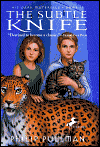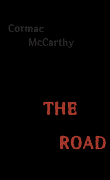
1.5 Stars
Ok. Gah. Alright. *Breath* Well. So there I am, perusing the children’s section (again) and looking for a brightly-colored, interesting cover with a grabbing synopsis to take with me back to my office. There’s nothing better during a busy day than to lose yourself in a fantastical world of magical beings and adventure. Best lunch ever! So I stumble upon Summerland, and it has all the required points: bright cartoonish cover showing a group of young people in a flying car, traveling over a countryside with the hint of fantasy and magic. The summary was even better–a young boy is dragged into the adventure of a lifetime when he finds a way to follow tree branches into another world. Ooohh! Neat! I bet there’s an unlikely hero, a coming of age, and a grand adventure! What fun! Isn’t it horrible when your hopes are dashed? Let me explain.
This book had it all–a beautifully imagined world populated by giants and gnomes and interesting beasts. The young boy from our time is, of course, the outcast with few friends and an inventor father, and he must travel into this new world to save his father from the canine threat that has kidnapped him for his mind. Fun! However, there was one major issue I had with the story–the author’s weird obsession with baseball. The entire book was based on baseball. The story starts with our young hero wanting to quit little league, and his father wanting him to stick with it. Not unsusual…baseball is boring, and the kid wasn’t any good. The first chapter is a tedious account of the little league game. We’re talking a hit by hit, play by play commentary, focusing primarily on how bad this one little boy is at the game. After untold pages of this, the game limps to an end, and we can continue our story…which involves the boy talking to his father about baseball, the father coaching the boy in baseball, the boy’s friends trying to help, and the coach yelling at the boy about baseball. Oh dear lord. It can’t get worse, right?
The story finally gets going as the boy’s father is kidnapped, and a gnome-elf thing approaches the boy and tells him the secret of inter-world travel. Then the boy is approached by a baseball scout. A scout. For baseball. I guess this is the Yoda-type character meant to lead the boy through his coming trials and tribulations. The scout explains mysteries of life to the boy using every baseball analogy in the book, then sends him on his way into another world, armed with a bat and glove. A bat and glove!
The boy proceeds to travel with his closet friends and newly found magical creatures through the new world, where they encounter lots of resistance and must overcome many hurdles. Do they do this by fighting? Wits? Sheer brain power? Of course not! Each and every problem is overcome by, wait for it, a game of baseball. Seriously! We’re talking “hey, a band of giants is going to eat us…let’s play a game of baseball to see if they will! The winners get to do whatever they want!” And are these games just mentioned in passing? No way! We get the hit-by-hit, play-by-play tedium that made the first chapter so damn memorable. Just kill me.
Well, the story ends in good fantasy fashion, with the boy growing up and magically becoming a baseball master, and everyone lives happily ever after. Except me. Because I just spent a million hours (this book was around 700 pages long) reading a book that had all the potential of becoming a great new fantasy, but ending up being bogged down in endless baseball descriptions. Now, I don’t really like baseball, but I don’t outright hate it. Sure, there are usually other things I’d rather be doing than watching a game on TV, but I’ve been to many a game live and it can be a fun outing. It’s not just the fact that the book was full of baseball. That could have worked, had the author spent less time explaining every single moment in the countless games, and used it more as a theme. He started this in the beginning, when he had the Yoda-scout explain that baseball was a way to live a slow summer afternoon. That was nice. I didn’t even mind the scout thing and the analogies between baseball and life. There was a great story in there…it was just impeded by all those innings and details about pop flies and stolen bases. It could have been so much better!
My final word on the matter (maybe): if you love listening to baseball on the radio and you love fantasy books, buy this one immediately. If you’re more concerned about a well-written story that moves, avoid this like the plague.
–Adrienne














